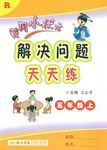题目内容
Real teachers know that without them standing at the front of the class, ______ the knowledge, excitement, encouragement, passion and fun, schools will be very dull places indeed.
A.delivering B.sending C.teaching D.presenting
A

练习册系列答案
 黄冈小状元解决问题天天练系列答案
黄冈小状元解决问题天天练系列答案
相关题目